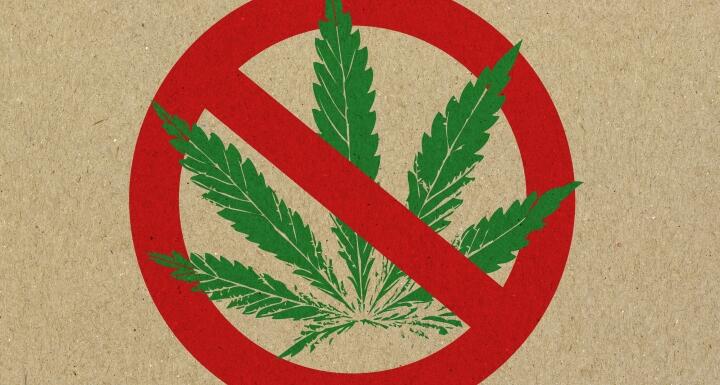Despite widespread trends in state-level legalization and decriminalization of high-THC cannabis and growing acceptance of cannabis among Americans, cannabis and cannabis products remain illegal under federal law.
At least 37 states, the District of Columbia, Guam, Puerto Rico, and the U.S. Virgin Islands have adopted a medical cannabis regulatory program – and 18 states, two territories, and the District of Columbia have enacted measures to allow and regulate adult-use cannabis. Companies and individuals operating within those state-legal markets often face unique difficulties and challenges and lack access to basic financial services and legal protections widely available to non-cannabis operators. As we've written before, in situations of financial difficulty or distress, cannabis operators and their owners, vendors, suppliers, and business partners lack guaranteed access to the bankruptcy courts.
Some bankruptcy courts have found that the mere presence of cannabis (usually called "marijuana") near a bankruptcy case does not automatically prohibit bankruptcy relief, but many others have bent over backwards to find cause to dismiss these cases. In the latter, bankruptcy courts have consistently dismissed cases when a debtor directly engages in violations of the Federal Controlled Substances Act ("CSA") or where the debtor's reorganization efforts depend on proceeds derived from CSA violations.
A recent ruling from the U.S. Bankruptcy Court for the District of Arizona serves as another reminder that federal bankruptcy courts are hostile territory for cannabis companies and their operators. Ryan Mayer filed a bankruptcy case under Chapter 13 of the U.S. Bankruptcy Code, seeking to reorganize his personal debts and liabilities. In a Chapter 13 bankruptcy, an individual proposes a plan to re-pay all or a portion of his debts. The amount to be repaid depends on how much he earns, the amount and types of debt owed, and how much property he owns. As a general rule, debtors must use all monthly disposable income to re-pay their debts.
Mayer was the president and a major shareholder of Rosinbomb. Although not plant-touching, Rosinbomb derived most revenue from the manufacture and nationwide sale of extraction and processing equipment within the state-legal cannabis industry. And all Mayer's income came from Rosinbomb.
Shortly after filing, Mayer's creditors and the Chapter 13 trustee moved to dismiss the case. They argued that Mayer's ownership interest in and sole source of income from Rosinbomb, a "marijuana-related business" under federal law, violated the CSA and disqualified him from bankruptcy. In response, Mayer argued that Rosinbomb's machinery and equipment were used by non-cannabis companies and consumers and that Mayer could fund his plan and pay his creditors in full from assets legally obtained under state and federal law – including an expected inheritance from his deceased father's estate.
Unfortunately for Mayer, the Court found there was no credible evidence to support his claims that sufficient income could be generated from equipment sales to federally-lawful hemp and other non-cannabis customers and that the inheritance claimed by Mayer was speculative. The Court dismissed the case, finding that Mayer's only reliable source of income came from a business whose operations violate the CSA, since Rosinbomb's business activities themselves amount to the sale of federally illegal cannabis paraphernalia under the CSA.
Mayer was not involved in a plant-touching cannabis operation. He did not grow or sell cannabis plants or products, and neither did Rosinbomb. IT DIDN'T MATTER. Rosinbomb's customers "touched the plant" by using the Rosinbomb machinery to extract cannabis oils and rosin. Those plant-touching customers paid Rosinbomb, which paid Mayer. Ergo, Mayer's personal income constituted proceeds of a federally-illegal activity. Therefore, he could find no shelter in bankruptcy.
Is there a point when a debtor's connection to marijuana becomes too attenuated to bar them from the bankruptcy courts? We don't yet know. For now, state-legal cannabis businesses and their operators – even those who do not directly touch the plant or its products – will continue to struggle to avail themselves of bankruptcy protection. This is a problem for the cannabis industry, which faces the same economic pressures faced by all large and small businesses. Bankruptcy – from large commercial reorganizations under Chapter 11 to small-business Subchapter V to individual Chapter 7 and 13 cases -- is a refuge for honest but unfortunate companies and individuals seeking to reorganize their affairs and obtain a fresh start. Unfortunately, for most players in the industry, bankruptcy is not an option – at least not one they can assume is available to them.
While federal legislative efforts to provide these protections have stalled, the case law continues to develop. For now, this case serves as another reminder that debtors and their attorneys must carefully assess all links to the cannabis industry, direct and indirect, before filing bankruptcy. As shown in Mayer, even an indirect link to a non-plant touching business can be grounds for disqualification and dismissal.









